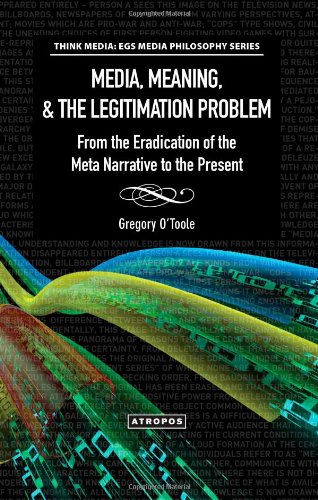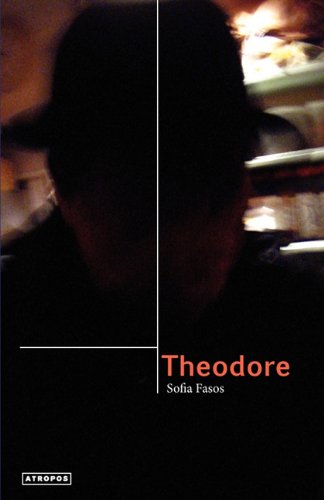Gregory O'Toole
Media, Meaning, & the Legitimation Problem from the Eradication of the Meta Narrative to the Present
Paperback – January 17, 2014 | 106 Pages | ISBN here* | ISBN here*
The late Jean-Francois Lyotard wrote that metanarratives, that is, the big stories we live by, legitimate our lives both as individuals and collectively, living within societal groups. Lyotard also explained that the metanarrative has been eradicated from Western culture and that efficiency (i.e. a fast-track to profit) is the only model left which leaves the current state of legitimation in a curious position. We are left asking the question: "What legitimates?" The fact that this question needs to be asked is enough to know that there is a legitimation problem, but this is not the whole problem. In order to understand the process leading to legitimation, Media, Meaning, and the Legitimation Problem works to establish the necessary workflow toward the metanarrative: the flow of the message from knowledge, to establishing meaning, to legitimation. To compound the legitimation problem, in our current information technology condition, there is a growing imbalance within this process. In the mass media (i.e. networked, connected, Internet) world, it is arguably true that most of what a population knows, discusses, and concerns itself with on a daily basis is narrative knowledge. At the very least, there is much more narrative knowledge to sift through with the advent of the active audience among other factors. Examples of this can be seen in the current state of American commercialism, foreign and corporate policy, news, and the political economy of the mass media. The conclusion of Media, Meaning, and the Legitimation Problem is that, perhaps, the remaining entities that are our options for legitimation are only created, synthetic choices and that contemporary media consumers must consider a "post-legitimation" model as a plan to participate successfully as a critical and informed member of society.











